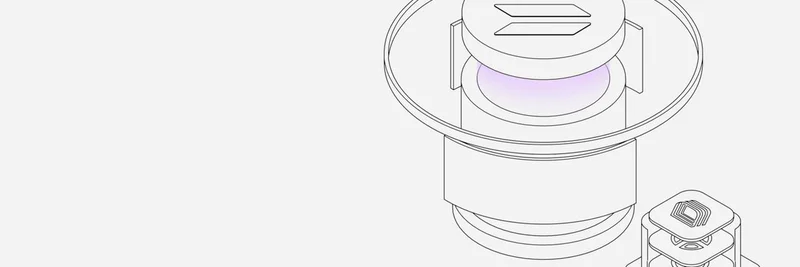Jito, a prominent player in the Solana ecosystem, has introduced a groundbreaking innovation that promises to reshape how transactions are processed on the network. The Block Assembly Marketplace (BAM) is a new high-performance block-building architecture designed to bring verifiability, privacy, and programmability to Solana’s transaction pipeline. This development marks a significant step forward in the evolution of decentralized finance (DeFi) on Solana.
What is the Block Assembly Marketplace (BAM)?
BAM is essentially a decentralized platform where transactions are sequenced and blocks are built in a manner that ensures privacy and transparency. Unlike traditional systems, BAM leverages Trusted Execution Environments (TEEs) to keep transactions encrypted until execution. This approach not only enhances security but also allows for cryptographic attestations of transaction ordering, ensuring that the process is fully auditable.
Key Features of BAM
Privacy and Security
One of the standout features of BAM is its ability to maintain transaction privacy. By using TEEs, BAM ensures that transactions remain encrypted until they are executed, significantly reducing the risk of malicious interference such as front-running or sandwich attacks. This is particularly crucial in a high-speed environment like Solana, where transaction timing can be critical.
Transparency and Verifiability
Despite the emphasis on privacy, BAM does not compromise on transparency. The system generates cryptographic proofs that allow for the verification of transaction sequences. This means that while individual transactions remain private, the overall process is transparent and verifiable, fostering trust among users and stakeholders.
Programmability
BAM introduces a new level of programmability to Solana’s transaction processing. Developers can now create custom transaction sequencing logic through plugins, which are programmable interfaces that connect to BAM Nodes’ schedulers. This flexibility opens up a world of possibilities for decentralized applications (dApps), allowing them to tailor their transaction handling to specific needs.
Impact on the Solana Ecosystem
The introduction of BAM is poised to have a profound impact on the Solana ecosystem. Here’s how:
Enhanced User Experience
For users, BAM means more reliable and secure transactions. The ability to cancel orders without spamming the network and the assurance of institutional-grade execution guarantees enhance the overall user experience. This is particularly beneficial for traders and institutions that rely on precise and timely transaction processing.
Revenue Generation
BAM also creates new revenue streams for various stakeholders within the Solana ecosystem. Operators, validators, developers, and stakers can all benefit from the value generated by BAM. For instance, Jito has announced that all fees from BAM and its Block Engine will be directed to the DAO Treasury, accruing value to token holders.
Adoption and Growth
By addressing key challenges such as toxic MEV (Miner Extractable Value), BAM makes Solana more suitable for complex financial applications like perpetual exchanges and centralized limit order books (CLOBs). This, in turn, is expected to drive greater adoption and growth within the ecosystem.
Jito’s Vision for the Future
Jito’s CEO, Lucas Bruder, has expressed a vision of decentralizing the block-building process. Initially, BAM nodes will be operated by Jito Labs, but the plan is to expand this to include 50-100 nodes. Furthermore, Jito intends to open-source the BAM software later in 2025, which will further democratize access to this technology.
Conclusion
The launch of the Block Assembly Marketplace (BAM) by Jito represents a pivotal moment for Solana and the broader DeFi landscape. By combining privacy, transparency, and programmability, BAM addresses some of the most pressing challenges in blockchain transaction processing. As the technology matures and gains wider adoption, it could set a new standard for how decentralized networks handle transactions, ultimately benefiting users, developers, and the ecosystem as a whole.
For those interested in exploring BAM further, Jito has provided resources and documentation on their website. The future of finance on Solana looks brighter than ever with innovations like BAM leading the way.



